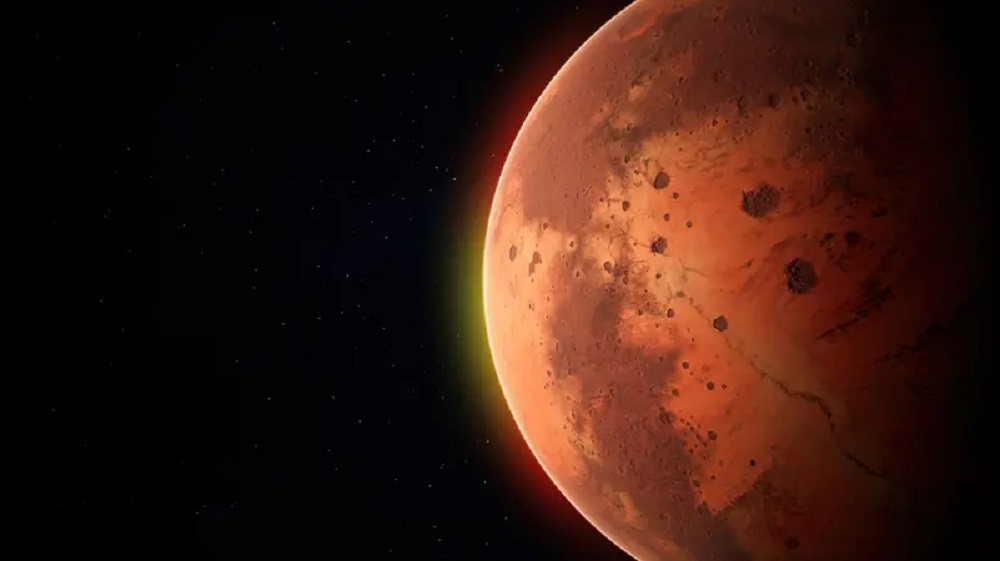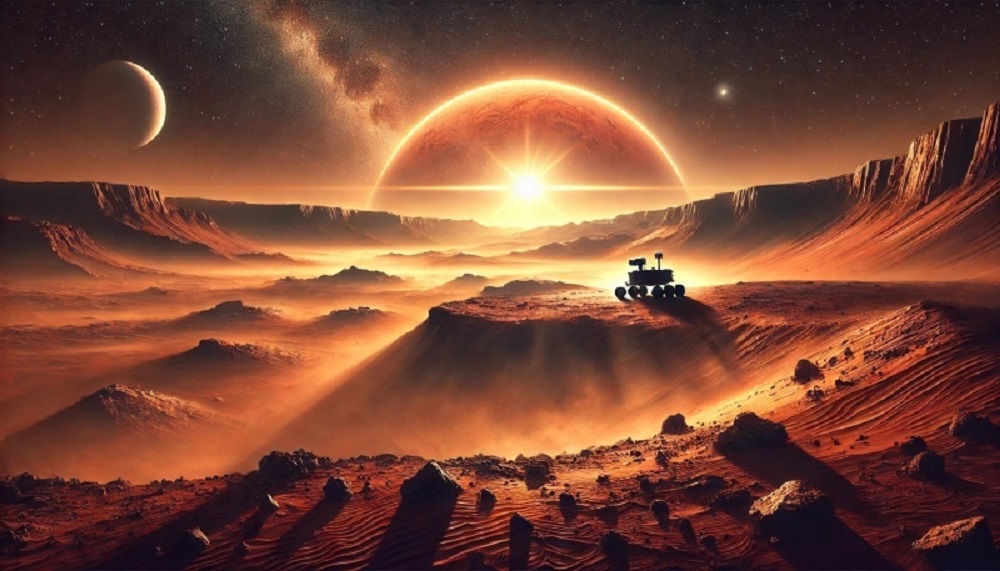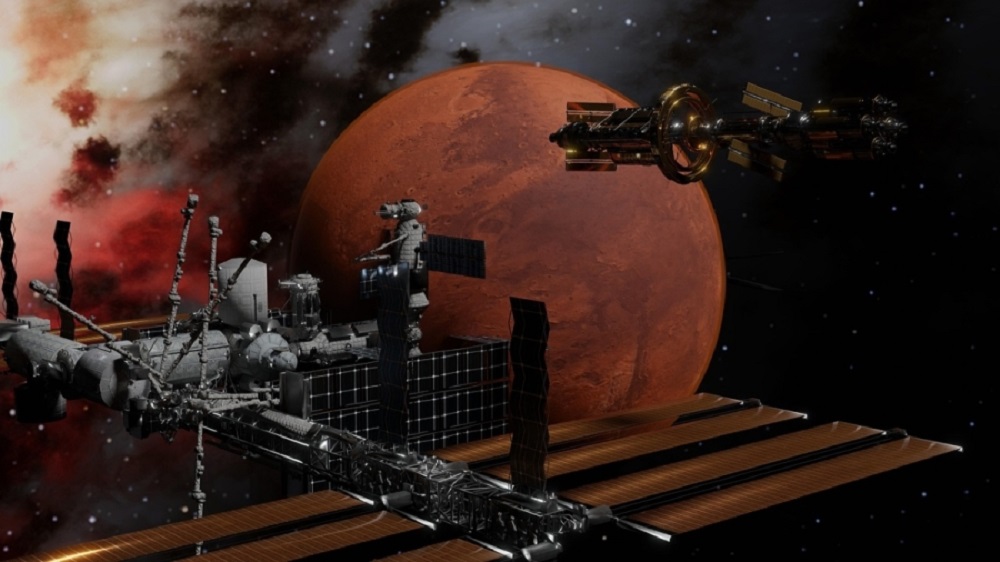Scientists Discover a 4-Billion-Year-Old Beach on Mars: A Game-Changer in Space Exploration
New findings from China’s Zhurong rover suggest Mars once had lakes, rivers, and possibly even oceans, reshaping our understanding of the Red Planet’s past.

Watan-Scientists have discovered a 4-billion-year-old beach on the Red Planet, Mars, thanks to the Chinese rover Zhurong.
This new discovery could lead to a complete reassessment of our understanding of Mars, even though the idea of water once existing on the planet is not new, according to Eco Portal, as reported by Al Arabiya Business.
However, the discovery of ancient shorelines and their resemblance to Earth’s could indicate that Mars once had lakes, rivers, and possibly even oceans.
The Big Question: What Happened to the Water?
Could Mars have supported life like Earth? There are existing theories about this, but with this new discovery, scientists may need to reconsider their understanding.

An Unexpected Discovery
Mars is now a cold desert of rock and dust, but 4 billion years ago, it was a very different place.
According to findings from the Zhurong rover, Mars once had a climate and weather conditions that could have supported life. On Earth, we have the sun, rain, snow, and other factors that sustain life, oceans, rivers, animals, and humans—so perhaps Mars once had similar conditions.
In other words, the geological structures discovered resemble those found on Earth. One of the first indicators of this ancient beach included well-preserved shallow sand ridges located about 10 meters below the Martian surface. The rover’s ground-penetrating radar detected vast layers of sand that appear to have been shaped by ocean waves, gently sloping toward a rocky shoreline.
This suggests that Mars once had conditions similar to those on Earth, making it capable of supporting liquid water. But the main question remains: What catastrophic event led to the disappearance of all of this?

What Happened to Mars’ Water?
One theory suggests that Mars once had a thicker atmosphere, which eventually dissipated, halting its ability to sustain life over millions of years. But if a beach existed, there should also be evidence of marine ecosystems.
Scientists are particularly interested in Mars because it resembles Earth in many ways, raising the possibility of future human habitation.
As for where the water went, researchers believe it may have become trapped beneath the planet’s icy surface. Others suggest it may have escaped into space due to atmospheric loss.
In short, the evidence of ancient water bodies—rivers, oceans, and shorelines—strengthens the argument that Mars may have once been habitable.
If marine ecosystems once existed, scientists might eventually discover fossils of fish or other aquatic species. However, no such evidence has been found or documented yet.




